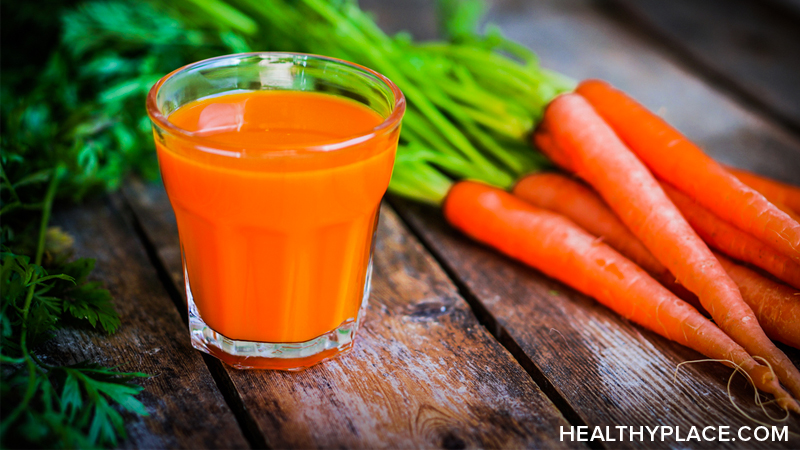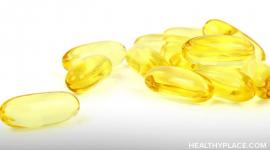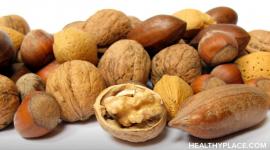Beta-carotene

Beta-carotene may reduce risk of heart disease and cancer. Beta-carotene supplementation, however, may be dangerous. Learn about the usage, dosage, side-effects of beta-carotene.
Common Forms:b-carotene, Trans-beta Carotene, Provitamin A, Betacarotenum
- Overview
- Therapeutic Uses
- Dietary Sources
- Dosage and Administration
- Precautions
- Interactions and Depletions
- Supporting Research
Overview
Beta-carotene, derived from the Latin name for carrot, belongs to a family of natural chemicals known as carotenes or carotenoids. Widely found in plants, carotenes give yellow and orange fruits and vegetables their rich colors. Beta-carotene is also used as a coloring agent for foods such as margarine.
Beta-carotene is converted to vitamin A (retinol) by the body. While excessive amounts of vitamin A in supplement form can be toxic, the body will only convert as much vitamin A from beta-carotene as it needs. This feature makes beta-carotene a safe source of vitamin A.
Like all other carotenoids, beta-carotene is an antioxidant. Consuming foods rich in beta-carotene appears to protect the body from damaging molecules called free radicals. Free radicals cause damage to cells through a process known as oxidation, and over time, such damage can lead to a variety of chronic illnesses. Some studies suggest that dietary intake of beta-carotene may reduce the risk of two types of chronic illness - heart disease and cancer. Supplementation, however, is more controversial; see discussion in the section that follows.
Therapeutic Uses
Prevention
Population-based studies suggest that groups of people who eat 4 or more daily servings of fruits and vegetables rich in beta-carotene may have less of a chance of developing heart disease or cancer. Interestingly, however, other studies indicate that people who take beta-carotene supplements may actually be at an increased risk for such conditions. Researchers speculate that multiple nutrients, consumed in a healthy, balanced diet may be more effective than beta-carotene supplements alone in protecting against cancer and heart disease.
Treatment
Sun Sensitivity
Studies suggest that high doses of beta-carotene may decrease sensitivity to the sun. This is particularly helpful for people with skin conditions caused by sunlight exposure, such as erythropoietic protoporphyria, a condition characterized, in part, by development of hives or eczema upon exposure to the sun. Under the guidance of an appropriate health care professional, the oral supplement dose of beta-carotene is slowly adjusted over a matter of weeks and exposure to sunlight gradually increased.
Scleroderma
Because people with scleroderma, a connective-tissue disorder characterized by hardened skin, have low levels of beta-carotene in their blood, some researchers speculate that beta-carotene supplements may be beneficial for those with the condition. Due to methodological flaws in the studies that have been conducted to date, however, research has not confirmed this theory. At this time, it is best to obtain beta-carotene from dietary sources and avoid supplementation until more information is available.
Dietary Sources of Beta-carotene
The richest sources of beta-carotene are yellow, orange, and green leafy fruits and vegetables (such as carrots, spinach, lettuce, tomatoes, sweet potatoes, broccoli, cantaloupe, and winter squash). In general, the greater the intensity of the color of the fruit or vegetable, the more beta-carotene it contains.
Dosage and Administration
Beta-carotene supplements are available in both capsule and gel forms. Beta-carotene is fat-soluble and, therefore, should be taken with meals containing at least 3 g of fat to ensure absorption.
Pediatric
For children younger than 14 with erythropoietic protoporphyria (see Treatment section for brief description of this condition), 30 to 150 mg per day (50,000 to 250,000 IU) in single or divided oral doses for 2 to 6 weeks is recommended. The supplement may be mixed with orange or tomato juice to facilitate administration. In the case of this sun-sensitive condition, a doctor can measure blood levels of beta-carotene and adjust the dose accordingly.
Adult
- For general health, 15 to 50 mg (25,000 to 83,000 IU) per day is recommended.
- For adults with erythropoietic protoporphyria, 30 to 300 mg (50,000 to 500,000 IU) per day for 2 to 6 weeks is recommended. A healthcare practitioner can measure blood levels of beta-carotene and adjust the dose accordingly.
Precautions
Beta-carotene offers protection from cancer only when other important antioxidants, including vitamins C and E are present in the diet. Since beta-carotene may increase the risk of heart disease and cancer in those who smoke or drink heavily, this supplement should be used with caution, if at all, by heavy smokers or drinkers.
Although beta-carotene affords protection from sunlight for people with certain skin sensitivities, it does not protect against sunburn.
Side Effects
Side effects from beta-carotene include:
- Skin discoloration (yellowing that eventually goes away)
- Loose stools
- Bruising
- Joint pain
Pregnancy and Breastfeeding
While animal studies indicate beta-carotene is not toxic to a fetus or a newborn, there are no human studies to confirm these findings. The supplement may pass into breast milk but no information on the safety of its use during breastfeeding has been reported. Therefore, while pregnant or breastfeeding, beta-carotene supplements should only be used under the guidance of a physician or other appropriately trained specialist.
Pediatric Use
Side effects in children are the same as those seen in adults.
Geriatric Use
Side effects in older adults are the same as younger adults.
Interactions and Depletions
People taking the following medications should avoid beta-carotene supplements:
Cholestyramine, Colestipol, Probucol
Cholestyramine and probucol, medications used to lower cholesterol, can lower blood concentrations of dietary beta carotene by 30% to 40%, according to a 3-year trial in Sweden. Colestipol, a cholesterol-lowering medication similar to cholestyramin, may also reduce beta-carotene levels.
Orlistat
Beta-carotene and orlistat, a weight loss medication, should not be taken together because orlistat can reduce the absorption of beta-carotene by as much as 30%, thereby reducing the amount of this nutrient in the body. Those who must take both orlistat and beta-carotene supplements should separate the time between taking the medication and the supplements by at least 2 hours.
Other
In addition to these medications, mineral oil (used to treat constipation) may lower blood concentrations of beta-carotene and ongoing use of alcohol may interact with beta-carotene, increasing the likelihood of liver damage.
Supporting Research
The Alpha-tocopherol, Beta-carotene Cancer Prevention Study Group. The effect of vitamin E and Beta Carotene on incidence of lung cancer and other cancers in male smokers. N Engl J Med. 1994;330:1029-1035.
Clark JH, Russell GJ, Fitzgerald JF, Nagamori KE. Serum beta-carotene, retinol, and alpha-tocopherol levels during mineral oil therapy for constipation. Am J Dis Child. 1987;141(11):1210-1212. (abstract)
DerMarderosian A. Ed. The Review of Natural Products. Tanning Tablets. St. Louis, MO: Facts and Comparisons; 2000. [Date of issue Nov. 1991]
Elinder LS, Hadell K, Johansson J, Molgaard J, Holme I, Olsson AG, et al. Probucol treatment decreases serum concentrations of diet-derived antioxidants. Arterioscler Thromb Vasc Biol. 1995;15(8):1057-1063. (abstract)
Facts and Comparisons. Beta Carotene. Loose leaf edition. St. Louis: Mo; Wolters Kluwer Co; Jan 2000 update:7.
Gabriele S, Alberto P, Sergio G, Fernanda F, Marco MC. Emerging potentials for an antioxidant therapy as a new approach to the treatment of systemic sclerosis. Toxicology. 2000; 155(1-3):1-15.
Hercberg S, Galan P, Preziosi P. Antioxidant vitamins and cardiovascular disease: Dr Jekyll or Mr Hyde? Am J Public Health. 1999; 89(3):289-291.
Herrick AL, Hollis S, Schofield D, Rieley F, Blann A, Griffin K, Moore T, Braganza JM, Jayson MI. A double-blind placebo-controlled trial of antioxidant therapy in limited cutaneous systemic sclerosis. Clin Exp Rheumatol. 2000;18(3):349-356.
Hu G, Cassano PA. Antioxidant nutrients and pulmonary function: the Third National Health and Nutrition Examination Survey (NHANES III). Am J Epidemiol. 200015;151(10):975-981.
Leo MA, Lieber CS. Alcohol, vitamin A, and beta-carotene: Adverse interactions, including hepatotoxicity and carcinogenicity. Am J Clin Nutr. 1999;69(6):1071-1085.
Liede KE, Alfthan G, Hietanen JH, Haukka JK, Saxen LM, Heinonen OP. Beta-carotene concentration in buccal mucosal cells with and without dysplastic oral leukoplakia after long-term beta-carotene supplementation in male smokers. Eur J Clin Nutr. 1998;52(12):872-876.
Martindale: The Complete Drug Reference. 32nd edition. London, UK; Pharmaceutical Press; 1999. Micromedex Inc., on line database.
Mathews-Roth MM. Photoprotection by carotenoids. Federation Proceedings. 1987;46(5):1890-1893.
McEvoy Ed. AHFS Drug Information. Bethesda, MD: American Society of Health-System Pharmacists; 2000:3308.
Omenn GS, Goodman G, Thornquist M, Grizzle J, Rosenstock L, Barnhart S, et al. The beta-carotene and retinol efficacy trial (CARET) for chemoprevention of lung cancer in high risk populations. Smokers and asbestos exposed workers. Cancer Res. 1994;54:2038S-2043S.
Omenn GS, Goodman GE, Thornquist MD, et al. Risk factors for lung cancer and for intervention effects in CARET, the Beta-Carotene and Retinol Efficacy Trial. J Natl Cancer Inst. 1996;88(21):1550-1559. [abstract]
Physician's Desk Reference. 54th ed. Montvale, NJ: Medical Economics Company, Inc.; 2000:2695.
Pizzorno JE, Murray MT. Textbook of Natural Medicine, Vol 1. 2nd Edition. Edinburgh, UK: Churchill Livingstone; 1999.
Pryor WA, Stahl W, Rock CL. Beta carotene: from biochemistry to clinical trials. [Review] Nutr Rev. 2000;58(2 Pt 1):39-53.
Roodenburg AJ, Leenen R, van het Hof KH, Weststrate JA, Tijburg LB. Amount of fat in the diet affects bioavailability of lutein esters but not of alpha-carotene, beta-carotene, and vitamin E in humans. Am J Clin Nutr. 2000;71(5):1187-1193.
USPDI Vol. II. Beta-Carotene (Systemic). Englewood, CO: Micromedex ® Inc.:Revised 7/9/97.
Werbach M, Moss J. Textbook of Nutritional Medicine. Tarzana, Calif: Third Line Press; 1999.
West KP, Katz J, Khatry SK, LeClerq SC, Pradhan EK, Shrestha SR, et al. Double blind cluster randomised trial of low-dose supplementation with vitamin A or beta carotene on mortality related to pregnancy in Nepal. The NNIPS-2 Study Group. BMJ. 1999;318(7183):570-575. (Available online at: http://www.bmj.com/cgi/content/full/318/7183/570)
Woutersen RA, Wolterbeek AP, Appel MJ, van den Berg H, Goldbohm RA, Feron VJ. Safety evaluation of synthetic beta-carotene. [Review] Crit Rev Toxicol. 1999;29(6):515-542. (abstract)
APA Reference
Staff, H.
(2008, December 23). Beta-carotene, HealthyPlace. Retrieved
on 2024, April 20 from https://www.healthyplace.com/alternative-mental-health/supplements-vitamins/beta-carotene



